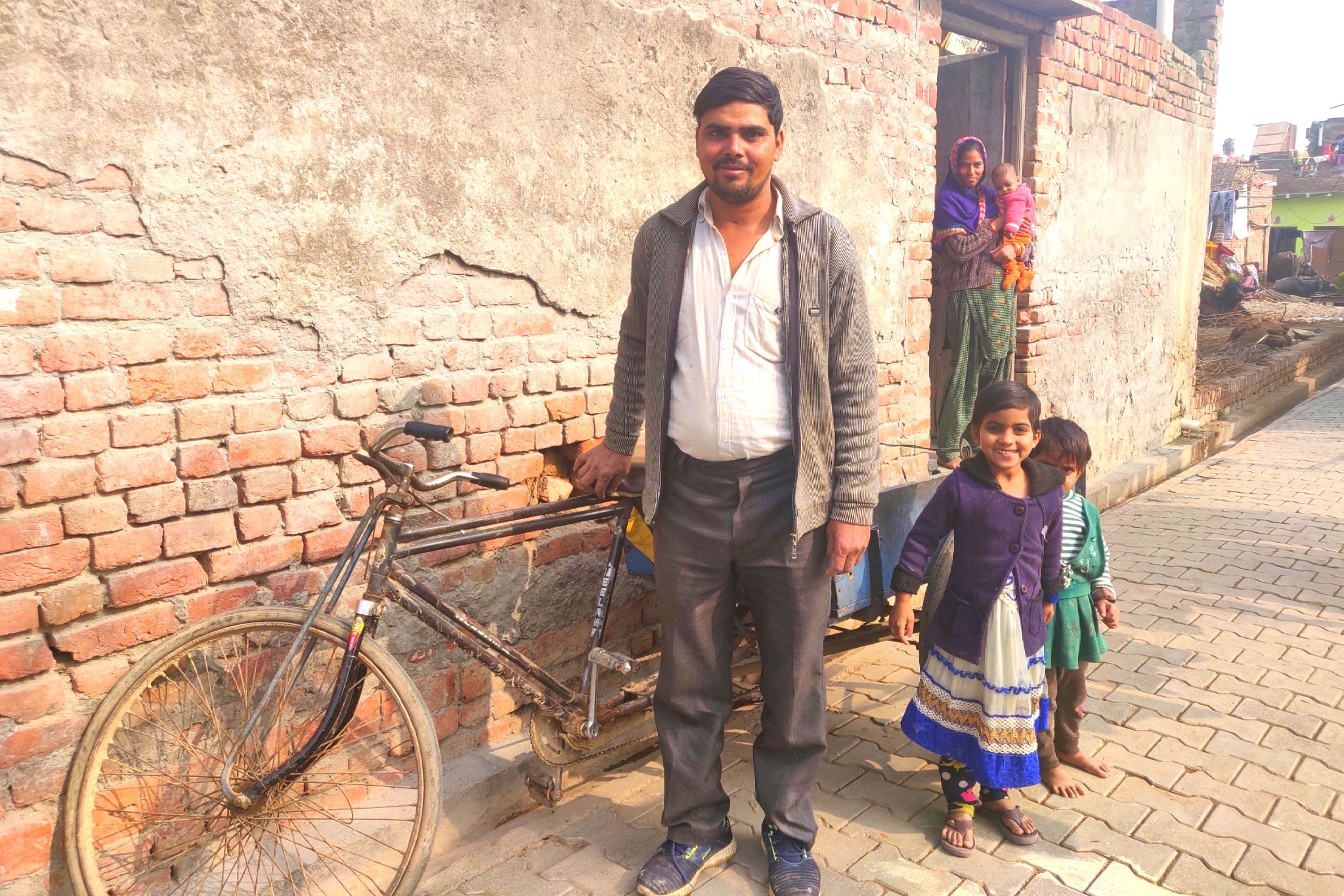Politics
Dalit Man Beaten For Selling Biryani Gets Monetary Relief, Slams Hate Campaign Against ‘Upper Castes’ Over His Assault
- After the case of assault became public, a social media backlash against ‘upper castes’ and ‘manuwadis’ was witnessed.
- However, the victim says that generalisations are dangerous, as in his case, many ‘upper castes’ came to his help by trying to convince their peers of the inappropriate nature of their actions.

Lokesh with his wife and children at his house in Rabupura village in Uttar’s Pradesh Gautam Budh Nagar district on 9 January/Swati Goel Sharma
A month ago, a poor Dalit biryani vendor from Uttar Pradesh’s Gautam Budh Nagar district, was beaten up with casteist slurs by three upper-caste men from a neighbouring village.
A short video of the incident went viral in local WhatsApp groups and later on social media.
(Read this correspondent’s report in the case here).
Lokesh had said at that time that the motivation of the attack was nothing but bullying. He said it’s become a fashion among some upper-caste men to go around bullying and harassing the poor, record the act on their phones and humiliate them further by circulating the videos.
Most posts with the hashtag hurled abuses at all upper caste Hindus, especially Brahmins. Slurs like “Manuwadi pigs” were liberally used to malign entire communities.
If Lokesh was to get a rupee for every such hateful post, he would be richer by a few lakhs. The vendor, on the other hand, unaware of the social media outrage, quietly suffered a significant financial loss as he could not go to work for two weeks.
Chandrashekhar Azad, founder of a Dalit outfit called Bhim Army, was snubbed by then Noida senior superintendent of police Vaibhav Krishna on social media when Azad asked his outfit volunteers to ensure police action in the case. Krishna responded to Azad on Twitter, saying that the police were already taking necessary action and Azad should not attempt to disrupt peace.
In the meanwhile, with a hand-to-mouth existence, every missed day at work was adding to Lokesh’s woes. The 38-year-old has five daughters and a three-month old son. Four of his children go to school, all admitted in private institutes.
That was the first instalment of a total of Rs 50,000 monetary relief granted to Lokesh by the National Commission for Scheduled Castes.
The relief had come about after a Dalit rights activist, Sanjeev Newar, took Lokesh’s case of financial loss to the commission.
Lokesh said, “I am not very educated. I was asked for some documents like my caste certificate and bank account details, which I provided. It happened in between a slew of media interviews. I wasn’t really expecting any help.”
The vendor has only recently recovered and resumed work. “I suffered an internal injury as they kicked me in my back. It’s only now that I feel fit enough to go out,” he says.
Lokesh and his wife cook vegetable biryani at an earthen stove at home, that Lokesh stores on his hand cart and goes to villages within five kilometres of his house. On a good day, he earns about Rs 500.
In the ongoing winter season, however, the sales are low and his income has come down.
When asked, Lokesh said no Dalit leader approached him for help.
This correspondent showed him some social media posts made against upper-caste Hindus in the wake of the assault on him. He said the posts were unfortunate and he did not approve of any.
“Many of those who helped me were also from upper-caste,” he says.
Lokesh’s neighbours were equally disapproving of the hate on social media when told about it. Premwati, who is also from Jaatav caste, said the community doesn’t consider Thakur or upper-caste as adversaries.
“Our village has several Thakur families and they have always sided with us. After this case, a few Thakur men from Mohammabad met the Thakurs in our village to facilitate a compromise. But our Thakurs didn’t budge,” she says.
Introducing ElectionsHQ + 50 Ground Reports Project
The 2024 elections might seem easy to guess, but there are some important questions that shouldn't be missed.
Do freebies still sway voters? Do people prioritise infrastructure when voting? How will Punjab vote?
The answers to these questions provide great insights into where we, as a country, are headed in the years to come.
Swarajya is starting a project with an aim to do 50 solid ground stories and a smart commentary service on WhatsApp, a one-of-a-kind. We'd love your support during this election season.
Click below to contribute.
Latest